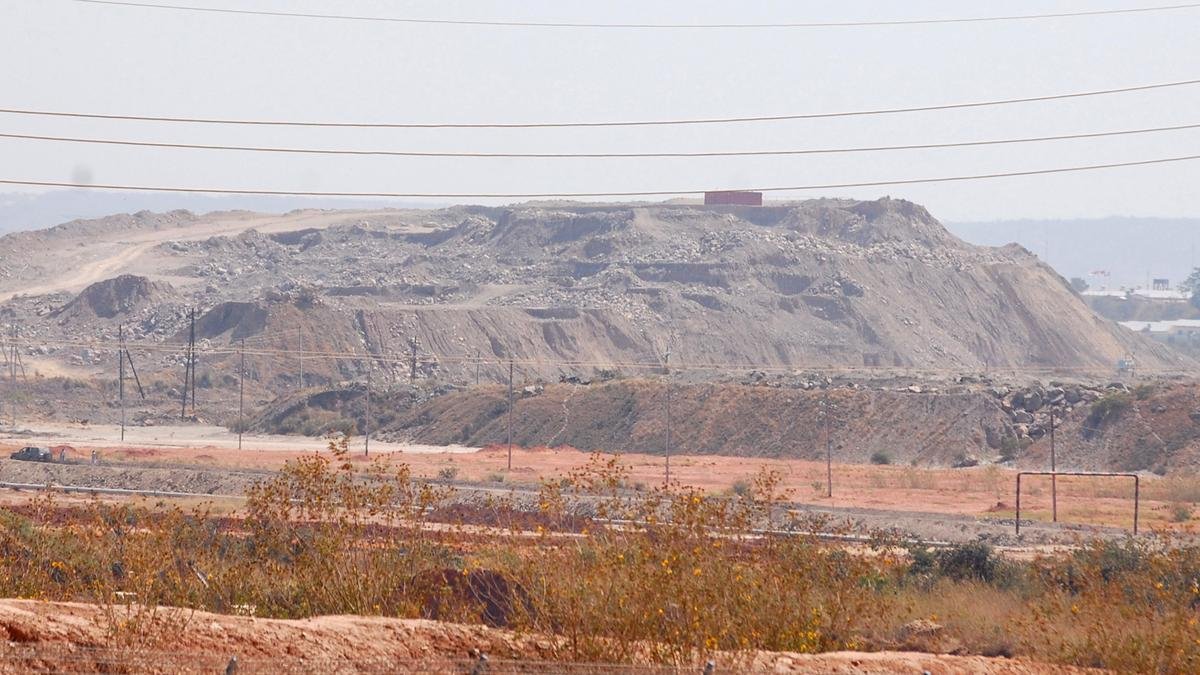Why in the News?
- African nations are increasingly challenging China’s dominance in the mining sector by renegotiating contracts and imposing stricter regulations.
- Countries like the Democratic Republic of Congo (DRC), Zimbabwe, and Namibia are implementing measures to ensure value addition and local benefits from mineral wealth.
- Rising environmental, social and governance (ESG) concerns and civil society activism are pushing for transparency and accountability in mining deals.
Key Highlights
- China’s Entrenched Presence in Africa’s Mining Sector
- Over two decades, China has become a dominant player in Africa’s mineral extraction, especially in cobalt, copper, and
- DRC produces 80% of global cobalt, and China controls about 80% of that output through deals like Sicomines.
- These deals often promised infrastructure development but delivered limited local benefits.
- Growing Resistance from African Governments and Civil Society
- African nations are questioning opaque contracts and tax concessions given to Chinese companies.
- Example: According to the civil society coalition Congo Is Not for Sale (CNPAV) reported tax exemptions cost DRC $132 million in 2024 alone.
- Public outrage and activism have led to calls for full reviews of major agreements like Sicomines.
- Policy and Contractual Changes to Ensure Fair Share
- DRC renegotiating existing contracts, planning to raise its stake in Sinohydro-China Railway joint ventures from 32% to 70%.
- Zimbabwe and Namibia imposed export bans on unprocessed lithium to promote local beneficiation.
- Sale of Chemaf Resources to a Chinese company was cancelled after opposition by Gecamines (state miner).
- Environmental and Social Backlash Against Chinese Firms
- Mining projects linked to China have caused environmental damage and poor labor conditions:
- Zambia: Acid spill from Chinese copper mine polluted Kafue River.
- Zimbabwe: Sunny Yi Feng (Chinese company) blocked from coal mining in Hwange National Park.
- Cameroon: Sinosteel’s Lobé-Kribi Iron Ore Project faces local opposition due to ecosystem and heritage risks.
- Accusations of corruption, like China’s Xinfeng Investments has been accused of acquiring its lithium mine through a bribe of N$ 50 million.
- Emerging Trend Towards Economic Sovereignty and Value Addition
- African nations aim to move from raw material suppliers to partners in the green economy.
- Increasing emphasis on processing and transformation within Africa to create jobs and boost industrial capacity.
- Requires strong regulatory frameworks and local capacity-building to prevent elite capture and ensure real development.
Implications
- For African Economies
- Positive:
- Potential for greater revenue retention and industrialization through local processing.
- Increased scrutiny and activism could enhance contract transparency, ESG compliance, and local accountability.
- Positive:
- Could reduce resource curse effects if reforms are implemented effectively.
- Challenge: Risk of inadequate infrastructure and skills to handle large-scale mineral processing.
- For China’s Strategic Position
- Impact: China’s dominance in African mining faces increasing challenges and renegotiations.
- Challenge: Could lead to higher operational costs and stricter compliance obligations for Chinese firms.
- For Global Supply Chains
- Africa could reshape global mineral supply chains, particularly for critical minerals like cobalt and lithium.
- This may affect global EV and renewable energy industries’ reliance on these resources.
- For Geopolitics and Strategic Partnerships
- Opening for other global players (EU, US, India) to enter African mining through fair trade and investment frameworks.
- Potential strategic competition between China and Western countries for critical minerals in Africa.
- Implications for India
- Strategic Realignment in Africa – Africa reducing dependence on China creates a geopolitical vacuum that India can fill through diplomatic, trade, and development initiatives.
- Enhanced Global Standing – Active engagement in Africa strengthens India’s role as a trusted development partner, reinforcing its claim for leadership in the Global South.
How India Can Leverage This Opportunity
- Expand Development Partnerships – Accelerate projects under the India-Africa Forum Summit and provide concessional finance for infrastructure, energy, and digital connectivity.
- Boost Trade & Investment – Promote Indian companies in mining, agriculture, and manufacturing sectors; offer competitive financing alternatives to Chinese loans.
- Technology & Skill Diplomacy – Scale up initiatives like e-VidyaBharti, Pan-Africa e-Network, and capacity-building programs to position India as a knowledge and tech partner.
Challenges and Way Forward
| Challenges | Way Forward |
| Opaque contracts and lack of transparency | Implement mandatory disclosure norms for all mining agreements. |
| Weak regulatory frameworks in many African states | Strengthen institutional capacity and anti-corruption measures. |
| Limited local processing infrastructure | Invest in technology transfer and skill development programs. |
| Environmental degradation and poor labor standards | Enforce strict ESG standards and penalties for violations. |
| Risk of elite capture and rent-seeking | Ensure inclusive policy-making with civil society participation. |
Conclusion
China’s once-unquestioned dominance in Africa’s mining sector is facing a significant challenge as African nations assert economic sovereignty and demand fairer terms. The shift towards local beneficiation, stricter regulations, and environmental accountability marks a historic transition in Africa’s resource governance. If these reforms are effectively implemented, Africa could transform from being a raw material supplier to a key player in the global green economy—though success will depend on balancing foreign investment with domestic capacity-building and transparency.
| EnsureIAS Mains Question Q. Recent moves by African nations to reduce economic dependence on China have created new geopolitical dynamics. Discuss the strategic implications of this shift for India and suggest measures India can take to strengthen its engagement with Africa. (250 Words) |
| EnsureIAS Prelims Question Q. Recently, some African nations have taken steps to reduce dependency on China. In this context, which of the following actions by India could best leverage this opportunity? 1. Expanding lines of credit for infrastructure development under EXIM Bank schemes. 2. Strengthening cooperation through the International Solar Alliance (ISA). 3. Increasing military presence in the Horn of Africa for security partnerships. 4. Offering digital public goods like Unified Payments Interface (UPI) for fintech solutions. Select the correct option: a. 1 and 2 only Answer: b. 1, 2 and 4 only |





